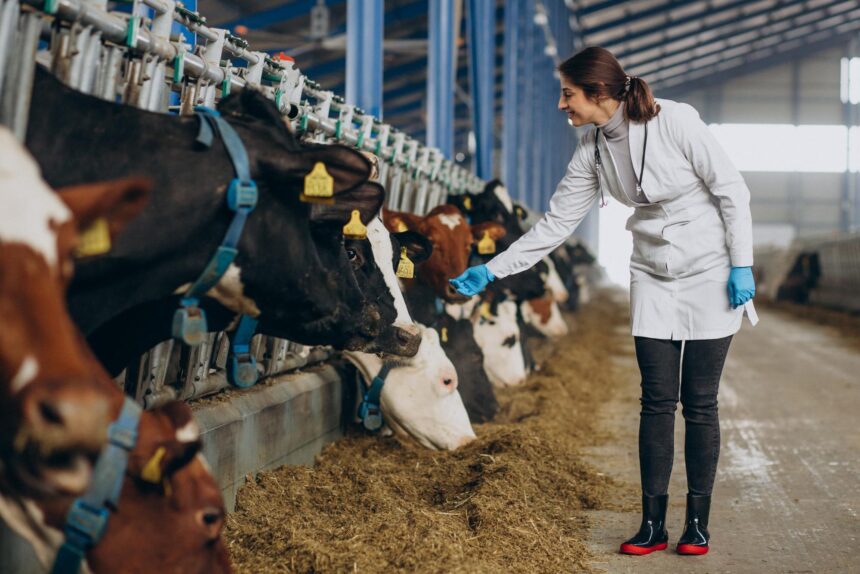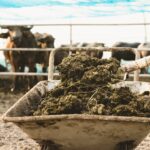Healthy livestock are the backbone of successful farming. Whether you’re managing a small homestead or running a large-scale operation, recognizing early signs of illness in animals can be the difference between quick recovery and major losses. Early detection not only helps prevent the spread of disease but also reduces treatment costs and improves overall productivity.
Here’s what every livestock farmer should watch out for.
1. Sudden Changes in Appetite or Water Intake
A noticeable drop in feed or water consumption is often the first red flag. Livestock that stop eating or drinking may be suffering from digestive issues, fever, infections, or even internal injuries. Keep a close eye on any animal that lingers near the trough without feeding.
2. Unusual Behavior or Lethargy
Healthy animals are generally alert and responsive. If a cow, sheep, goat, or pig suddenly isolates itself, lies down excessively, or appears unusually drowsy, it could be fighting off an illness. Early-stage infections, heat stress, or parasites often manifest through subtle behavioral shifts.
3. Coughing, Sneezing, or Nasal Discharge
Respiratory issues are common in livestock and can spread rapidly through herds. Frequent coughing, wheezing, or visible nasal discharge—especially if thick, colored, or accompanied by labored breathing—are serious warning signs. Diseases such as pneumonia or bovine respiratory disease complex (BRDC) are best tackled early.
4. Abnormal Feces or Urination
Monitor manure consistency and urination habits. Diarrhea, especially if persistent, can signal gastrointestinal parasites, bacterial infections, or poor nutrition. On the other hand, very dry feces or straining to urinate may indicate dehydration or urinary blockages.
5. Changes in Posture or Movement
Limping, stiff walking, arching of the back, or reluctance to move could point to foot rot, joint infections, or injury. Animals may also exhibit head tilting, circling, or stumbling if neurological conditions are present. Early treatment can often reverse symptoms and prevent permanent damage.
6. Poor Coat or Skin Condition
A healthy coat is usually glossy and smooth. Dull, rough, or patchy fur may indicate mineral deficiencies, skin parasites like mites or lice, or chronic disease. Excessive scratching, hair loss, or lesions should never be ignored.
7. Unusual Body Temperature
While not always visible, checking the temperature of a suspicious animal can provide immediate clues. Fever often accompanies infections, while low body temperature may signal shock or advanced illness. Having a livestock thermometer on hand is a smart investment.
8. Swelling or Bloating
Visible swelling on joints, udders, or abdomens should be investigated quickly. Bloating—especially in ruminants like cattle and sheep—can become fatal in hours. It’s usually caused by gas buildup due to disrupted digestion and needs urgent intervention.
9. Eye or Ear Abnormalities
Eyes should be bright and clear. Discharge, cloudiness, redness, or excessive tearing may indicate infections or trauma. Drooping ears or head tilting could point to inner ear infections or neurological issues.
10. Irregular Breathing or Heart Rate
Heavy breathing when the animal is at rest, gasping, or rapid heartbeats are signs something’s wrong. These symptoms can be linked to heart disease, respiratory infections, or heat stress, all of which require prompt attention.
A Proactive Approach Pays Off
Early detection starts with observation. Farmers and caretakers who spend time with their animals daily are more likely to notice small changes before they become critical. Keeping written records of health, weight, feed intake, and behavior can also highlight trends that warrant action.
In addition to vigilant monitoring, regular veterinary check-ups, proper vaccination schedules, and good hygiene practices are essential for prevention and early intervention.
Bottom line? Healthy animals mean a healthy farm. By learning to recognize the early signs of illness, farmers can protect their investment, ensure animal welfare, and keep operations running smoothly.
Join 'Farmers Mag' WhatsApp Channel
Get the latest Farming news and tips delivered straight to your WhatsApp
CLICK HERE TO JOIN






